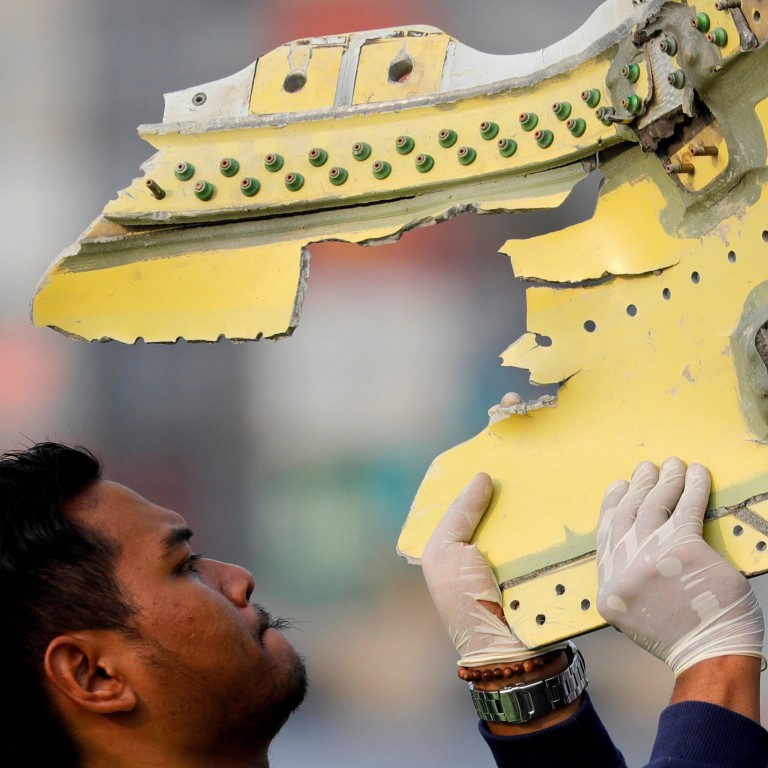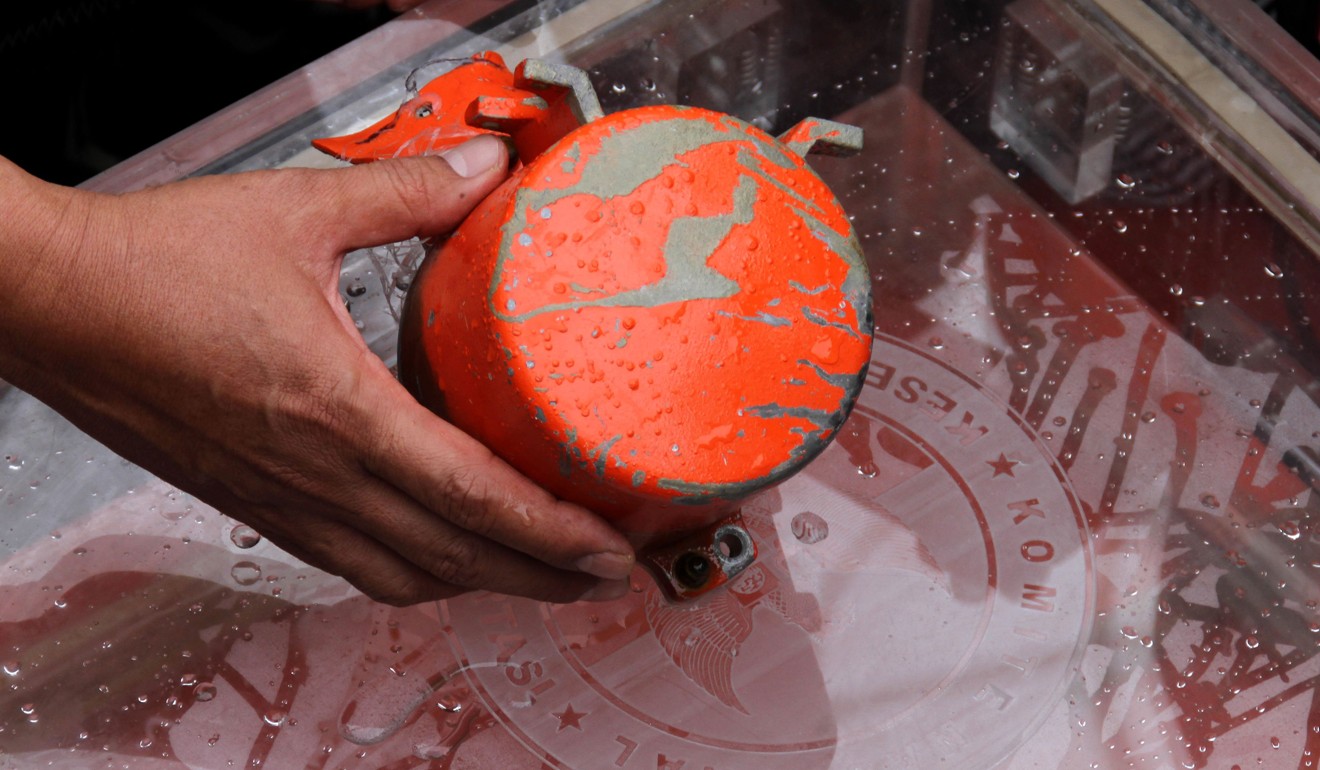
Lion Air jet crash: Navy ends search for human remains
- The Boeing 737 MAX 8 jet plunged into the Java Sea just minutes after taking off from Jakarta on October 29, killing all 189 people on board
- Data from cockpit voice recorder will about five days to be downloaded
The search for human remains of passengers on the Lion Air jet that crashed into the Java Sea in October will no longer continue, said an Indonesian Navy official on Monday afternoon.
Bodies which have been found will be released to Lion Air for identification, the head of Naval Hydrography and Oceanography centre told reporters at a press conference.
“From what we observe, I don’t think we can find any more human remains,” said Rear Admiral Harjo Susmoro. “We will give the human remains to Lion Air and other relevant sides for identification process.”
Pilots of doomed Lion Air flight may have been befuddled by safety system designed to prevent errors
On Monday morning, Navy vessel KRI Spica located the cockpit voice recorder of the Lion Air aircraft, in a possible boost to the accident investigation.

It would take three to five days for data to be retrieved from the recorder, said the head of Indonesia’s National Transport Safety Committee (KNKT).
“[Indonesian Navy vessel] Spica left the dock on January 8, to continue the previous search operation that ended on December 28,” said Soerjanto Tjahjono.
“The next step is to dry, clean, and download the data from CVR. It will take three to five days. As required by law, we will publish the preliminary report from the CVR finding within a month. Hopefully we can publish the final report within a year.”
Lion Air crash raises questions over whether Asia’s aviation sector is struggling to keep up with breakneck growth
The cockpit data recorder was recovered within days and showed that the jet’s airspeed indicator had malfunctioned on its last four flights.

A statement by the Indonesian navy said that a diver with the Hydrography and Oceanography Centre had found the voice recorder “about 50 metres from the spot where the flight data recorder was found days after the air crash”.
It added that the “ping” from the recorder could last up to 90 days, meaning there were only 15 days to go before the signal would have been lost.
If the voice recorder is undamaged, it could provide valuable additional information to investigators.
The Lion Air crash was the worst airline disaster in Indonesia since 1997, when 234 people died on a Garuda flight near Medan. In December 2014, an AirAsia flight from Surabaya to Singapore plunged into the sea, killing all 162 on board.
Lion Air is one of Indonesia’s youngest airlines but has grown rapidly, flying to dozens of domestic and international destinations. It has been expanding aggressively in Southeast Asia, a fast-growing region of more than 600 million people.


